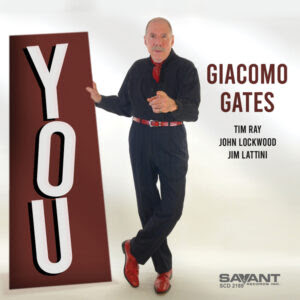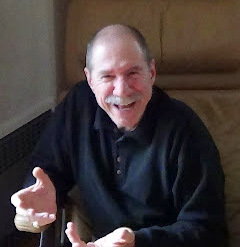 |
| Chris Dingman: Journeys Vol 1 Inner Iniative Arts Inc. |
Musician/educator Chris Dingman had a life changing experience in 2018. His father Joe was suffering from
what became a terminal complication from cardiac Amyloidosis. Chris offered a musical gift for his father, five hours of spatially soothing music, created specifically to ease the
father’s suffering. Before transitioning, the father uncharacteristically told his son “A miracle
has happened through this music. It has transformed me over and over again. It
has made me stronger, made me want to live life again.” This emotional experience changed the artist’s perception of just how powerful music could be and altered his solo approach to his instrument.
Vibraphonist Chris Dingman has been on my radar since I first
caught his delicate and creative work with a quintet at Firehouse 12 in New
Haven back in 2010. Since then, I have followed this talented artist as his
musical horizons seem to expand exponentially in every passing year. His debut
was Waking Dreams with his quintet from 2011. Then came The
Subliminal and the Sublime, again his quintet, which I named one of the
best releases of 2015. This was followed by his trio on Embrace in 2020, of
which I wrote “a stunning treasure of musical tastes, senses, and sounds." His deeply personal solo album to his father Peace followed in 2021.
Dingman’s work is strongly influenced by the tradition of the vibraphone as an instrument in jazz. As a percussionist, he has also absorbed elements of South Indian, Western African, Korean and Brazilian music in his eclectic playing. He was born in San Jose, California, and studied music at Wesleyan with artist/educators like vibraphonist Jay Hoggard and multi-reed/composer Anthony Braxton. I also hear the airy, tubular approach that marks the vibraphonist work of Gary Burton in much of Dingman’s playing.
Dingman was selected to participate
in the Thelonious Monk Institute of Jazz Performance at USCLA in 2005 where he
spent two years working with such luminaries as Herbie Hancock, Wayne Shorter, and Terrence Blanchard. He has studied with jazz masters like bassist Rob
Carter and Jimmy Health and has collaborated with some of the most progressive
and innovative artists in the music today, including altoist Steve Lehman, trumpeter
Ambrose Akinmusire and percussionist/multi-instrumentalist Tyshawn Sorey. The man has cred.
On Journeys Vol 1, Dingman creates five, non-symphonic,
what I think of as tone poems. They evoke an atmosphere, a landscape, an occurrence,
a path, or an immersion into a sensory state. These experiences the artist is
aurally capturing are named by their titles. “Silently Beneath the Waves,” Light
Your Way,” “Hope-Rebirth,” “The Long Road,” and “Refracted Light.” Each piece
is performed solo by Dingman using his skill, his creativity and his resonating vibraphone.
On the fifteen-minute “Silently Beneath the Waves,” Dingman creates
a swirling, liquid environment that surrounds you. A womb-like, amniotic fluid-type
protective hollow of space and peace. As a listener, if you release your mind, absorb the
eddies Dingman creates with his soothing, repetitive, sometimes cascading resonant
tones, it can sweep you away, transport you into a sensory world that connects to
a primal part of your being.
 |
| Chris Dingman (photo credit unknown) |
On “Light Your Way” Dingman’s playing sometimes takes on the tone of a mbira (pronounced m-Bee-ra) a Zimbabwe-originated instrument that creates a drone-like, meditative sound by plucking metal tines over a hollowed wood board or resonator. The pedal tone drone he employs creates the base on top of which he improvises a secondary harmony line. In the African Shona people tradition, the instrument is used to summon ancestral spirits. Dingman’s music has become transformational. His experience with healing and the spiritual effects discovered during his father’s illness has changed his musical direction and focus.
 |
| mbira |
On his “Hope-rebirth,” Dingman utilizes the higher register
of his instrument to express lightness, spritely elements that have their own effervescence.
The artist creates a whirl of notes that seem to be set free, open, released. They rise
like emancipated angelic beings from the firma, transversing space and elevating to the
next level.
“The Long Road” could be described as Dingman’s aural
representation of our journey in life from birth to transition. We are created,
we find our way, we discover, we make choices, we love, we lose, and through it
all we are on a long road that hopefully leads us to
enlightenment. The artist’s musical choices are hopeful, the road rises, the
path may be arduous, but it can lead to a higher state.
Enjoy this transcending music https://chrisdingman.bandcamp.com/album/journeys-vol-1


